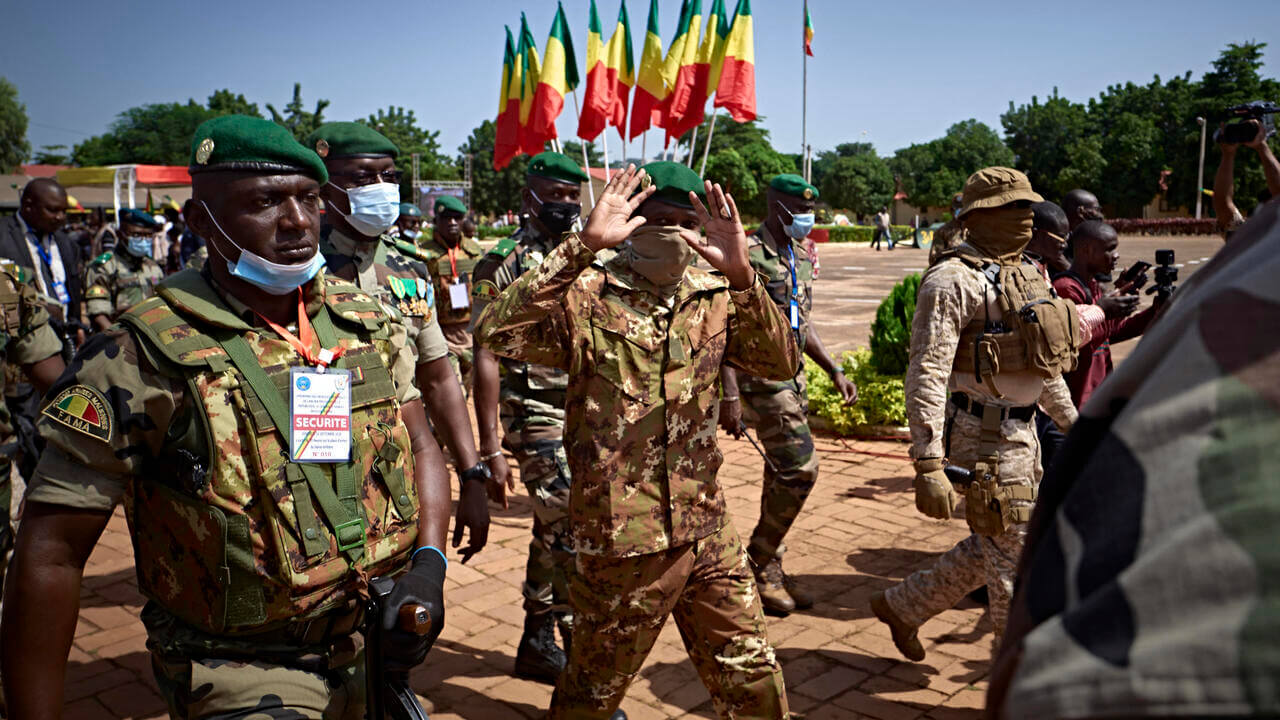Continuing its strong push for a return to democracy in Mali, the 15-member Economic Community of West African States (ECOWAS) on Tuesday condemned the military junta’s announcement that it will only relinquish power in March 2024, over two years later than the originally agreed-upon timeline after the coup in August 2020.
The bloc released a statement denouncing the “regrettable” unilateral decision “while negotiations are still ongoing” to reach a “mutually agreed timeline.” In fact, ECOWAS had been pushing for a 16 month extension at most.
On Monday, junta leader and interim President Col. Assimi Goïta signed a decree that revealed that the new transition period is “fixed” at 24 months, starting from March 26, 2022.
Without waiting for #ECOWAS, the transitional government of #Mali announces two more years of transition.
— Christian Klatt (@chk2310) June 6, 2022
It has to be seen if the regional community agrees on this proposal (they rejected it once already) https://t.co/9ZscpFj9bj
Malian government spokesperson Abdoulaye Maiga also dismissed ECOWAS’ concerns, saying that the decision followed “advanced negotiations” with the bloc, which he said is indicative of “the willingness of (Malian) authorities to (engage in) dialogue.”
He added that the junta is “hopeful the sanctions will be lifted imminently,” following which an electoral timeline will be drafted.
Leaders from West African states had gathered in Accra over the weekend to discuss the situation in the country, wherein they agreed to keep the current sanctions in place. The punitive measures were first imposed in January and comprise border closures and restrictions on financial transactions.
Mali has been under military rule following military coups in August 2020 and May 2021. Following the first coup, the junta had agreed to an 18-month transition period. However, in February of this year, the transitional parliament voted to extend the junta’s rule by five years, inviting harsh criticism from the African Union and ECOWAS.
ECOWAS has since denied sanctions relief unless the junta agrees to a shorter transition period, ranging 12-16 months. A follow up summit is scheduled for July 3.
La #Cedeao dit regretter la décision des autorités maliennes de décréter unilatéralement une durée de transition de 24 mois, alors que les négociations se poursuivent pour atteindre un consensus entre les partis. #Mali pic.twitter.com/vM5L686yii
— Matteo Maillard (@matteomaillard) June 7, 2022
However, Malian Prime Minister Choguel Maiga claims that the government “cannot go below 24 months” unless it decides to “postpone or not to carry out certain actions until the end.”
The country has struggled in its fight against jihadist insurgents since 2012, which is why its previously democratically elected governments had sought assistance from France and European forces.
However, in May, the junta unilaterally terminated the ‘Defense Cooperation Treaty’ with France and the Status of Forces Agreement with European forces, citing “flagrant violations” of Mali’s sovereignty. Experts believe this could further isolate the impoverished nation and create even bigger power vacuums for jihadist groups to exploit.
At the same time, international actors worry that it will push the military to act with greater impunity, particularly with the help of Russian paramilitaries.
West African leaders have decided to uphold sanctions against #Mali, along with the suspension of #BurkinaFaso and #Guinea from the bloc. The measures could be lifted if the military rulers speed up plans for a return to civilian rule. #Ecowas https://t.co/dSuge4Hz8F pic.twitter.com/mInT94N3bA
— RFI English (@RFI_En) June 6, 2022
This global isolation was further cemented last month when the junta claimed to have thwarted a Western-backed attempted coup.
Moreover, the decision to delay elections is likely to have knock-on effects across the already highly unstable Sahel region, particularly in countries like Burkina Faso, Chad, and Guinea, which are also ruled by military juntas.

